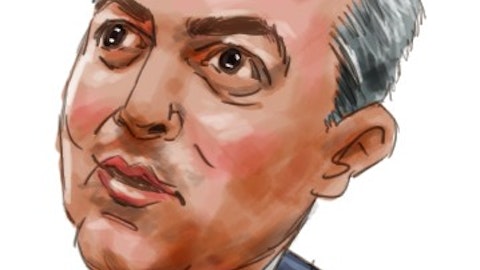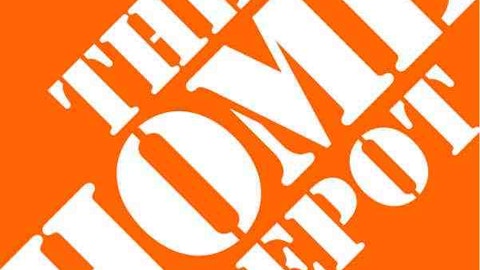
The question is, who is going to win? After the market closed on Tuesday Herbalife reported earnings and revenue that beat expectations and raised its guidance, but the conference call on Wednesday was a disaster and sent the shares down under $38. It also released that the SEC was investigating their business since Decemeber (surprise, they listened to Ackman), which was a big drag on the stock.
The difference between an MLM and a Pyramid Scheme
An MLM company is a type of company that relies on small individual sellers to go around to their friends, family, neighbors, and other potential buyers to sell their product to. In this case, nutritional products. There are bigger distributors that buy the product in bulk and sell it to the smaller distributors (for a small profit). Some of the individual sellers go around and try to make themselves bigger by finding people to sell the product for them, while others keep it small. As long as there is an end consumer, then it is an MLM as there is an actual demand for the product. Now, a pyramid scheme has a make-up that is very similar to an MLM, expect they have no end consumer and thus no actual demand. That is why you see a lot of pyramid schemes selling knifes or kitchenware, because the “idea” is that everyone needs these appliances and anyone could sell it to someone else. But, those who are roped in aren’t interested in selling these things little by little. They want to find other people to sell it for them. And thus a pyramid scheme is born. Now the question is, does Herbalife have end consumers and an actual demand for their products.
The Bear Case
The bear case is that Herbalife is a pyramid scheme and has been fooling the FTC, SEC, and other regulators in the 80 countries it operates in for 32 years. In Belgium (where 0.65% of Herbalife’s sales come from), their court system ruled that Herbalife was a pyramid scheme. Herbalife is trying to overturn that ruling. Bill Ackman is proposing that the added publicity around Herbalife will get the US regulators (where 20% of Herbalife’s revenue comes from) to wake up and sue Herbalife on the grounds that is a fraud. If this is true, Herbalife’s stock price would plummet. Bill Ackman contests that the reason why Herbalife keeps expanding into new markets is because it needs more and more people to bring into its scheme. If the SEC case reveals that Herbalife is a pyramid scheme, or at the very least needs to restate earnings, shorts will win.
The Bull Case
The bull case has several different parts to it. On one side of the equation, the 13 companies that the FTC investigated and found to be pyramid schemes were all around for less than 10 years. 11 of them were around for less than 5 years. So how could Herbalife, which has been around for 32 years and has been publically traded for 8, have duped the SEC and FTC for so long. Also, the SEC has already looked into Herbalife twice, and neither time did they find that Herbalife was a pyramid scheme. On the other side, Herbalife has grown its EPS by 23.85% annually over the past 5 years and has grown its revenues by 12.2% annual over that same period. With a PE (TTM) of 9.9 and a forward PE of 8, this company (assuming it is legitimate) is very undervalued. Herbalife also pays out a 3.1% dividend yield and has a great track record of buying back its stock.
Herbalife has around 39 million shares sold short right now, so the MOASS (mother of all short squeezes) could happen if Herbalife can continue to grow in the 20% range, steps up its buyback program, goes private (as Carl seems to want), and contests the pyramid scheme accusations head on. Herbalife beat estimates and raised its guidance, but its conference call was a disaster. Management spent so much time talking (I listened to the whole thing, boy was it hard), it become very long and boring. There was very little time for Q&A, and the questions they received were trivial until 2 at the end. Management has to prove to investors that it is a legit company and its financials are stable. During the call management failed to give any color on what Carl wanted, how they expect to fight the SEC investigation, or what they were going to do in regards to their undervalued stock price. In order for Herbalife to go back above $40 it needs to prove its a legit company, which it failed to do so this week.
Other MLM’s
There are other MLM’s out there that are publicly traded. is one of them. Nu Skin Enterprises, Inc. (NYSE:NUS) sells personal care and dietary supplements under the Pharmanex brand. These products include Element bars, Nu Skin 180 Skin Mist, True Face Line Corrector, and the like. All these products are legitimate and you could find many similar products at your local Wal-Mart or Target. Nu Skin isn’t a pyramid scheme, yet they also have an MLM structure with over 850,000 distributors. They used to have issues though; back in the 1990’s the FTC investigated Nu Skin for its MLM practices and its promotion of its products. In 1992, 1994, and 1997 it settled all its legal issues with regulators and its distributors over its corporate structure and overstating the effectiveness of its products. The biggest issue was that it was stating that its products were a lot more effective than they were and that it was overstating the money its distributors make. Management turned the company around and now it is ranked as one of Forbes “100 Most Trustworthy Companies”. If Herbalife was a pyramid scheme, how come the FTC investigated Nu Skin (a company that is much smaller than Herbalife) 20 years ago but hasn’t been able to find anything about Herbalife until a multi-billionaire decides to short the stock then talk about it.
Nu Skin could be a good buy if you think Herbalife is legit, because the stock sold off from $45 (now down to $41) after the whole Herbalife scandal broke. Nu Skin trades at a low PE (TTM) of 11.72 for a company that has grown its EPS by 37.9% (annually) over the past 5 years and pays out a 2.9% dividend yield. In 2010 Nu Skin made $2.18 a share, now that is up to $3.67 a share for 2012. One could assume that when the cloud over Herbalife goes away, so will the cloud over Nu Skin, which could push shares much higher.
Final Thoughts
Personally I don’t see Herbalife being a pyramid scheme. If the company was only around for a few years then I would onboard with Ackman as his claims would seem very legitimate. But there is no way Herbalife has fooled the FTC and SEC for 32 years. Even Nu Skin was investigated by the Feds and was found to not be a pyramid scheme. The Feds are rather bad at what they do and I hate the government in general, but over that long period of time someone would have noticed something was wrong if there was something to find. They have grown their revenue from $2.73 billion in 2010 to over $4 billion for 2012, so clearly something must be going right for them. I’m bullish on Herbalife and think the stock is undervalued, but we will just have to wait and see. Bill Ackman’s bet on J.C. Penney has yet to pay off, while Carl Icahn’s bet on Netflix and Chesapeake made him huge amounts of money. Don Loeb’s bet on Yahoo also paid out nicely. Bill is a good investor, but he should have taken his gains while he had the chance. Herbalife fumbled its chance to prove to the world it is a legit company, but the truth will come out once the SEC announces its investigation is closed because there is nothing to find.
The article The Battle of Hedge Funds originally appeared on Fool.com and is written by Callum Turcan.
Copyright © 1995 – 2013 The Motley Fool, LLC. All rights reserved. The Motley Fool has a disclosure policy.





